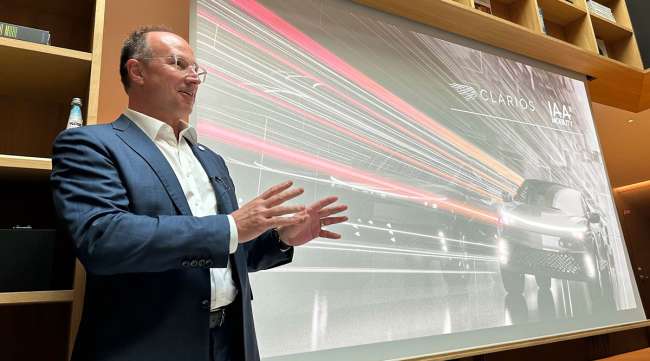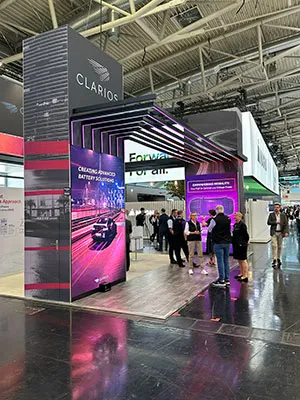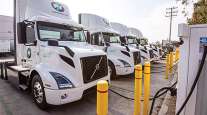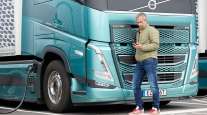Managing Editor, Features and Multimedia
Battery Maker Clarios Expands Low-Voltage Systems

[Stay on top of transportation news: Get TTNews in your inbox.]
MUNICH — Global battery supplier Clarios is expanding its engineering capabilities and developing new technologies to meet the shifting power demands of modern vehicles.
In a Sept. 4 presentation to automotive journalists during the IAA 2023 mobility show, Clarios CEO Mark Wallace said the low-voltage networks that support commercial vehicles and passenger cars alike are becoming increasingly complex to support the expansion of connected-vehicle technology, automated driving features and electric powertrains.
“No matter what architecture we talk about, they all have a low-voltage network,” Wallace said.
Batteries, which once existed simply to start the vehicle, are becoming part of more complex power systems that incorporate software and diagnostics.
“Today when you fast forward to the new vehicles we’re working on with our partners, the low-voltage network has a lot more capability because it’s providing a lot more resources for the vehicle,” Wallace said. “The need today of having just a battery is almost in the past. You really have to be a systems-level capable supplier to bring the right solution.”

Clarios showcases its vehicle battery technologies at the IAA 2023 mobility show in Munich. (J. Kyle Keener)
Clarios, based in Milwaukee and with operations in Michigan, Germany, India and China, is continuing to expand through acquisition.
The company on Aug. 30 announced plans to purchase the battery business of German automotive supplier Paragon.
That acquisition of Paragon’s battery operations will expand Clarios’ engineering team and complement its existing low-voltage and lithium-ion battery programs.
Financial details were not disclosed.
Clarios, which sells its products to aftermarket customers and original equipment manufacturers, is the parent of several global battery brands, including Optima, Varta, LTH, MAC, Heliar and Delkor.
Federico Morales-Zimmermann, vice president and general manager for global customers, products and engineering at Clarios, said the company is pursuing a range of battery technologies.
“We take a chemistry-agnostic approach,” including lead-acid, lithium-ion and future alternatives such as sodium-ion, as well as flexible voltage configurations with 12-, 24- and 48-volt systems for different vehicle types and applications, he said.
Beyond that, Clarios also is adding electronics and diagnostics to its battery technology to provide a system with sensing capabilities and battery health analytics.

Transport Topics' Seth Clevenger, Michael Freeze and Mike Senatore dissect the new Top 100 list of the largest private carriers, including how fleets are adapting to this softened market. Tune in above or by going to RoadSigns.ttnews.com.
As an example, he cited the company’s Smart AGM technology, which adds electronics and software on top of a well-known lead-acid product. That technology is currently undergoing fleet tests around the globe.
At the same time, the company supports its customers’ environmental sustainability goals by ensuring that up to 99% of the materials in its batteries are recovered, recycled and reused.
In the near term, a growth opportunity for Clarios is replacing the flooded batteries that are still used by many truck manufacturers with conventional AGM, or absorbent glass mat batteries.
“The trucks are getting more sophisticated,” Wallace said. “They need more power. They need more power when the key is off. They’re going to have to go to at least an AGM-style battery to support that.”
Clarios is a subsidiary of private equity firm Brookfield Business Partners, which purchased the company from Johnson Controls in 2019.
Want more news? Listen to today's daily briefing below or go here for more info:




